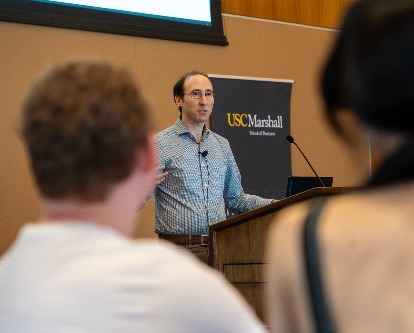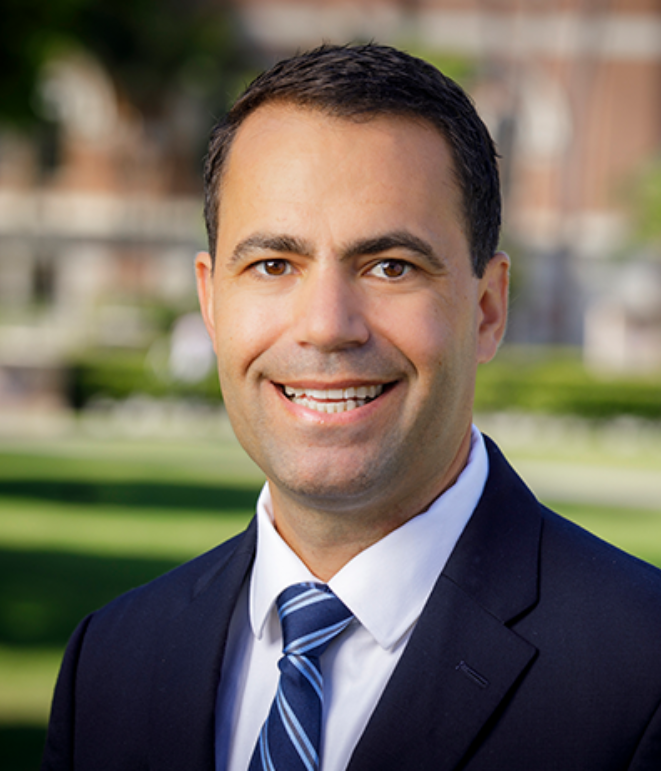
Marshall Faculty Present New Insights in AI, Banking, and Management at 2026 Research Fair
The 2026 Marshall Research Fair spanned a wide array of subjects, including AI bias and the origins of banks.
New Study Explores How Monthly Income Fluctuations Drive Up Mutual Fund Costs
New Study Explores How Monthly Income Fluctuations Drive Up Mutual Fund Costs
A new study examines how variations in monthly paychecks can put a strain on mutual fund managers and result in lower fund returns.

For the 80% of Americans paid weekly or biweekly, certain months bring a pleasant surprise: an extra paycheck. Many savvy investors direct that bonus into mutual funds — but this predictable influx of cash can create a headache for fund managers. New research reveals that these periodic surges in investment are linked to lower fund returns. The culprit? The cost of providing or absorbing liquidity on short notice. While the size of these inflows has held steady or even grown over time, their drag on returns has lessened, hinting that some funds have learned to better manage this recurring jolt of volatility.
A recent study by Bobby Carnes (USC), Nicholas Krupa (Clemson University), and Jeremiah Green (Texas A&M) in the Journal of Accounting, Auditing & Finance explores how fluctuations in household discretionary wealth influence retail mutual fund activity. The researchers use variation in the number of weekly or biweekly paydays in a given month as a proxy for changes in discretionary wealth. For the majority of American households — those paid weekly or every two weeks — wages represent a significant, regular source of financial variability. Depending on the number of pay periods in a month, total household income can vary by as much as 26%.
This variation is meaningful because many financial obligations, such as mortgages and insurance premiums, are fixed monthly expenses. In months with an extra paycheck — three for biweekly or five for weekly employees — those core expenses are often already covered, leaving a surplus of discretionary income. While earlier research linked this excess income to increases in household consumption, the new study turns to its broader effects on investment behavior.
Retail mutual funds, due to their accessibility, serve as a key outlet for this discretionary wealth. Using a dataset of nearly 260,000 fund-month observations from 1999 to 2019, the study finds that months with higher discretionary wealth correspond to increased fund inflows, and notably, to decreased fund performance. Specifically, abnormal inflows during these months are 55 to 68 basis points higher on an annualized basis, while market-adjusted returns are 57 to 62 basis points lower.
Supporting the notion that retail investors are behind these patterns, Robinhood brokerage data show increased individual stock purchases during high-discretionary-wealth periods. These findings suggest that household-level financial cycles create aggregate investment patterns that impose real liquidity costs on mutual funds.
The study further investigates the behavior driving these correlated investment decisions. While past research has highlighted retail investors’ tendencies to trade excessively and move with sentiment, this study offers a more targeted analysis. Evidence shows that sentiment-driven investing — such as chasing funds with strong recent returns — is more pronounced in months with higher discretionary wealth.
Finally, the research identifies which types of funds are most vulnerable to this volatility. Larger funds and those with more liquid portfolios, particularly those holding large-cap stocks, are better equipped to handle the influx of assets. For others, the recurring cash windfall for American households may continue to pose a subtle but persistent challenge.
These findings deepen the understanding of how retail investor behavior, driven by routine fluctuations in take-home pay, can ripple through financial markets, creating both predictable opportunities and hidden costs for fund managers.
RELATED
Marshall Faculty Present New Insights in AI, Banking, and Management at 2026 Research Fair
The 2026 Marshall Research Fair spanned a wide array of subjects, including AI bias and the origins of banks.
Marshall Faculty Publications, Awards, and Honors: February 2026
We are proud to highlight the many accomplishments of Marshall’s exceptional faculty recognized for recently accepted and published research and achievements in their field.
The Next Business Revolution: Six Rules for the Success of B2B Marketplaces
Assistant Professor Georgios Petropoulos’ research analyzes growth approaches for industrial digitization.
The Oft-overlooked Investor Costs of SEC Advisory Rules
New research by USC Marshall’s John Matsusaka shows how the SEC’s informal regulatory guidance — as in the issuance of SLB 14L — can hurt investors without any obvious positive tradeoffs, despite the agency’s mandate to protect investors and maintain stable capital markets
Interview: Ike Silver in Fast Company
Silver explains why some CEOs are now choosing to take political stances.